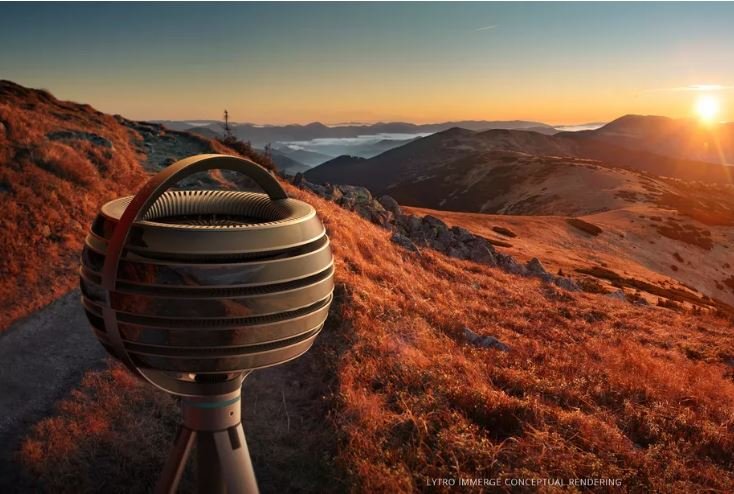
Lytro doesn’t say what will happen to the company’s patents or its employees. TechCrunch reported last week that Google was acquiring Lytro, and a person familiar with the matter confirmed to The Verge that a large fraction of former Lytro employees will be joining Google. But contrary to last week’s rumors, the person says Google isn’t trying to supplement its own light-field photography experiments with Lytro tech. The team will apparently be spread across multiple divisions, and will not be continuing Lytro’s previous camera work. Google is acquiring some Lytro assets but without direct plans to integrate them into existing projects.
TechCrunch reported that Lytro was being sold for between $25 and $40 million, but this person characterized Google’s move as more of a hiring deal than a company acquisition and did not confirm any price. Google declined a request for comment.
Lytro has struggled for years to build a viable business with its novel camera technology, which captures an image at multiple depths. In 2012, it released an experimental consumer camera that let users refocus images after the fact, then followed up with a $1,599 camera for professional photographers in 2014. But a year later, it laid off a significant portion of its workforce and shifted into the world of virtual reality, saying that competing directly with established camera companies had been a mistake. It eventually even dropped image hosting for old Lytro “living pictures,” erasing much of its early legacy.
The company reinvented itself in 2015 with a 360-degree camera rig called the Lytro Immerge. The Immerge recorded volumetric video where viewers could move in 3D space, albeit only slightly. The camera was also extremely niche: it cost hundreds of thousands of dollars and required learning the finicky art of 360-degree cinematography. Although many filmmakers are working with VR, it’s still a small industry, and casual enthusiasts can get a much cheaper 360-degree rig elsewhere.
Lytro has kept moving over the past year, acquiring VR animation company Limitless and producing a second version of the Immerge. It closed a $60 million investment round in early 2017, for a total of $210 million in funding. But the entire VR entertainment industry is working through a rough patch, and it’s not surprising that a VR camera company with a history of rocky product launches might have trouble staying afloat. With companies like Google experimenting with light fields, Lytro’s central idea will live on — but the company may have faced a battle it couldn’t win.
Lytro’s full statement is below:
At Lytro, we believe that Light Field will continue to shape the course of Virtual and Augmented Reality, and we’re incredibly proud of the role we’ve been able to play in pushing the boundaries of what’s possible. We’ve uncovered challenges we never dreamed of and made breakthroughs at a seemingly impossible pace. We’ve had some spectacular successes, and built entire systems that no one thought possible. More importantly, we built a team that was singularly unified in its focus and unrivaled in its dedication. It has been an honor and a pleasure to contribute to the cinema and Virtual Reality communities, but starting today we will not be taking on new productions or providing professional services as we prepare to wind down the company. We’re excited to see what new opportunities the future brings for the Lytro team as we go our separate ways. We would like to thank the various communities that have supported us and hope that our paths will cross in the future.
Woff, woff!
Hello @cornelkingsley, Nice to meet you!
I'm a guide dog living in KR community. I can see that you want to contribute to KR community and communicate with other Korean Steemians. I really appreciate it and I'd be more than happy to help.
KR tag is used mainly by Koreans, but we give warm welcome to anyone who wish to use it. I'm here to give you some advice so that your post can be viewed by many more Koreans. I'm a guide dog after all and that's what I do!
Tips:
Unfortunately, Google Translate is terrible at translating English into Korean. You may think you wrote in perfect Korean, but what KR Steemians read is gibberish. Sorry, even Koreans can't understand your post written in Google-Translated Korean.
I sincerely hope that you enjoy Steemit without getting downvotes. Because Steemit is a wonderful place. See? Korean Steemians are kind enough to raise a guide dog(that's me) to help you!
Woff, woff! 🐶
thank you so much for the heads up
Hi! I am a robot. I just upvoted you! I found similar content that readers might be interested in:
https://www.theverge.com/2018/3/27/17166038/lytro-light-field-camera-company-shuts-down-google-hiring
kr-guide!